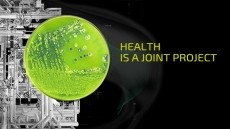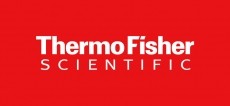Aceto makes determined pitch for Japanese intermediates
chemicals, is making a determined pitch for the pharmaceutical
intermediates sector in Japan.
The company, which has received and executed its first trial order for a drug intermediate from a Japanese pharmaceutical player, believes there is "huge potential" in a market currently served almost entirely by Japanese suppliers and in which cost pressures in the healthcare system are starting to galvanise the generics sector.
In a conference call for Aceto's second-quarter results, chairman, chief executive officer and president Leonard Schwartz said the company was "quite astonished" at the reception its intermediates initiative got from pharmaceutical manufacturers in Japan.
"I thought maybe one, three or four would talk to us," he commented.
"In fact, one out of two of every Japanese pharmaceutical manufacturer that we're talking to is talking to us on a serious basis - virtually all of them are serious about taking offers, looking at samples."
According to Schwartz, Aceto has been asked to supply offers on 25 different products in Japan, some for multiple customers.
The potential volumes involved are "telephone book numbers" , he added.
Aceto decided to enter the Japanese market during fiscal 2007, forming an operating company, Aceto Japan, Inc., for that purpose, with a policy of employing Japanese nationals and using traditional Japanese business practices.
It also signed a joint distribution agreement with what Schwartz described as a "very substantial" Japanese chemicals company, under which Aceto will provide product support and technical know-how, "and then we'll do the selling Japanese-style" , he noted.
Initially the intention was to address the market on three levels: pharmaceutical intermediates, active pharmaceutical ingredients (APIs) and finished dosage-form generics (a business Aceto is pursuing in the US and under its corporate brand through the Aceto Pharma Corp. subsidiary).
However, based on "very, very positive feedback, and what we perceive to be a very large opportunity" , Aceto is now focusing all of its resources on pharmaceutical intermediates, Schwartz told the briefing.
The entry times for intermediates are much shorter than for APIs or finished dosage forms and there is much less regulatory involvement, he pointed out.
Selling pharmaceutical intermediates in any market "is basically the responsibility of the pharmaceutical manufacturer" , Schwartz commented, whereas selling APIs would mean following the Japanese equivalent of a US Drug Master File, which "takes years" .
Moreover, the increasing cost-consciousness in the Japanese pharmaceutical market "is playing right into our hands" , Schwartz added.
He estimated sales of intermediates in Japan at more than $4bn, over 95 per cent of which was being supplied by Japanese chemical and pharmaceutical manufacturers.
"There are no other companies doing what Aceto is doing," Schwartz said.
The wider context for these moves is a country in which more than 20 per cent of the population is over 65 years old and healthcare costs are "rising dramatically ", he noted.
Schwartz believes the Japanese generics market, which accounts for about 16-17 per cent of overall pharmaceutical sales, is now in a comparable position to the US market in 1995.
"It's a huge potential business for this company, a huge opportunity," he commented.
Pharmaceutical intermediates are part of Aceto's Health Sciences segment, which makes up around 55 per cent of overall turnover.
In the second quarter of fiscal 2008 (ended 31 December 2007), the segment generated net sales of $43.6m, 8.7 per cent more than in the same quarter last year, and gross profit of $7.36m (+2.2 per cent).
The sales growth was attributed largely to increases of $1.46m in sales of pharmaceutical intermediates and of $1.34m in sales from foreign operations, specifically in Germany.
The Health Sciences segment fared rather better than the company as a whole, which reported net sales 1.9 per cent ahead at $77.1m, gross profit 0.8 per cent down at $12.5m, and a 36.8 per cent drop in operating income to $1.72m for the second quarter.
The results were affected in particular by a 48.5 per cent decline in sales by the Crop Protection segment, a "significant portion" of which Aceto hopes to recover in the second half; and a 7.5 per cent rise in selling, general and administrative expenses, mainly due to increased legal costs for an anti-trust case involving licensed technology for one of Aceto's crop protection products.
"We are clearly not happy and we are working hard to make it better," Schwartz told the briefing.
As far as finished dosage-form generics are concerned, Aceto is "continuing our efforts to enhance our pipeline of products" , he said.
The company has already launched isoflurane, an inhalable anaesthetic for human and veterinary use, while it expects shortly to begin shipping ondansetron, a drug for preventing nausea and vomiting associated with chemotherapy and radiation treatment for cancer.
Aceto has more than 10 finished dosage-form generics under development "at any given time" , Schwartz said, noting that the programme is a "developing process" in which "we're looking at more and then we're killing some" .










